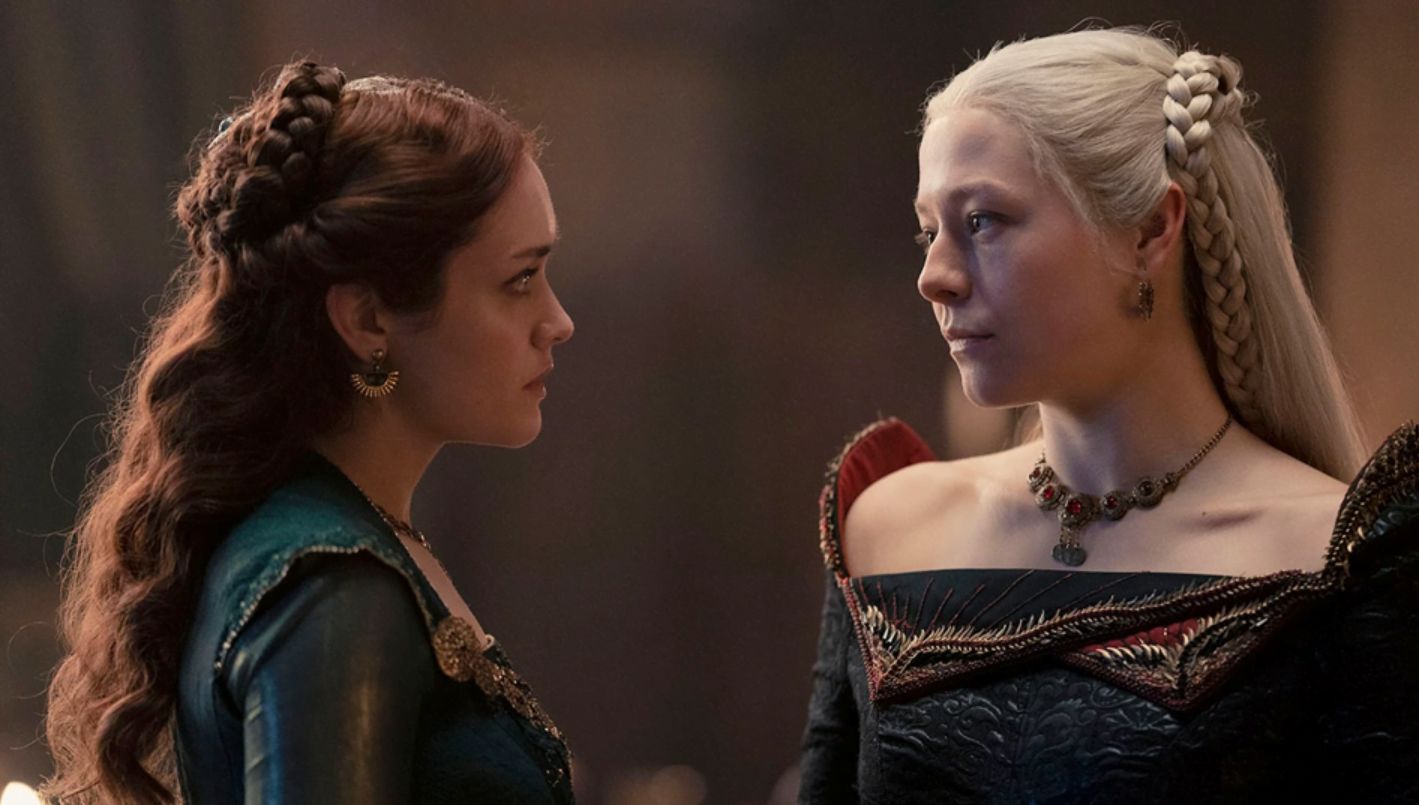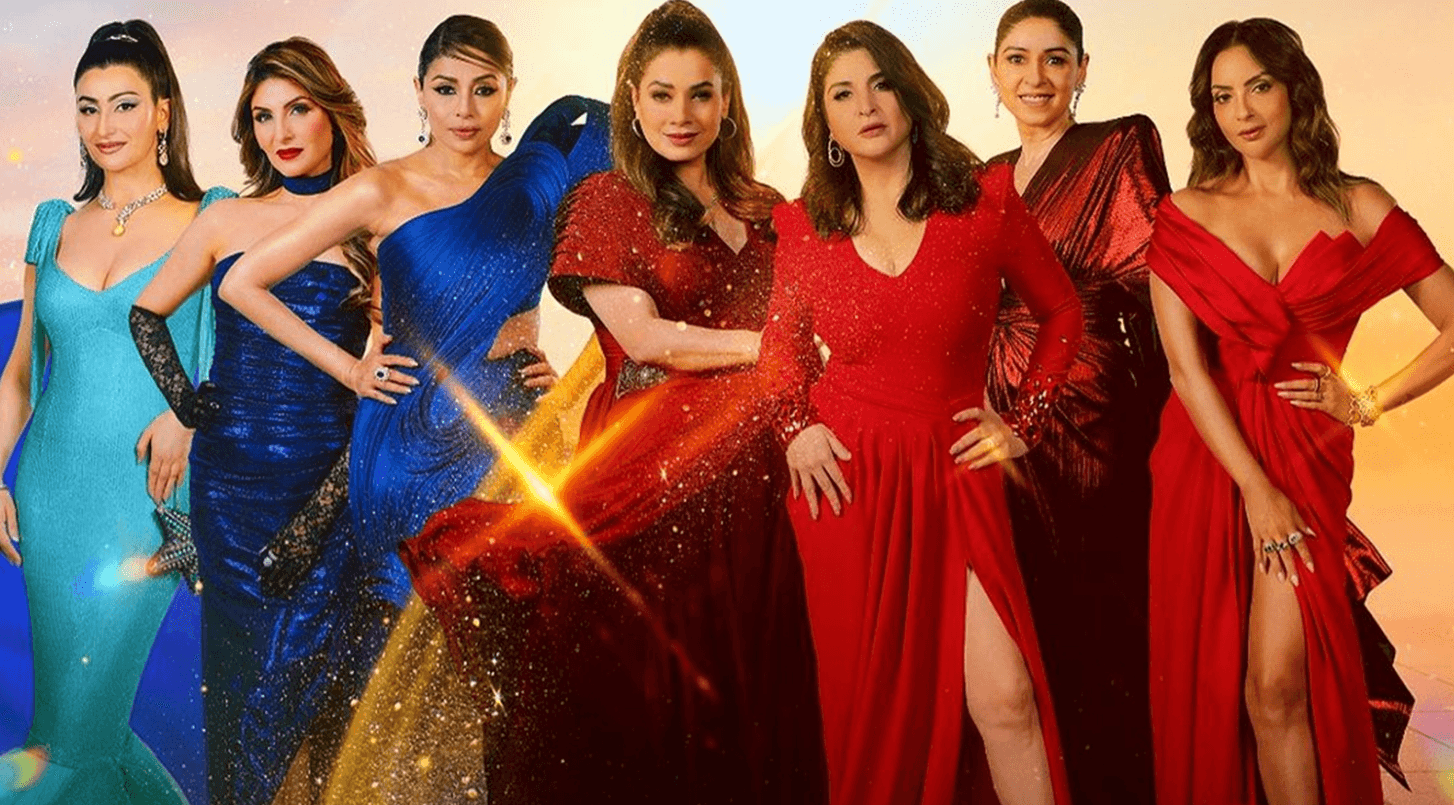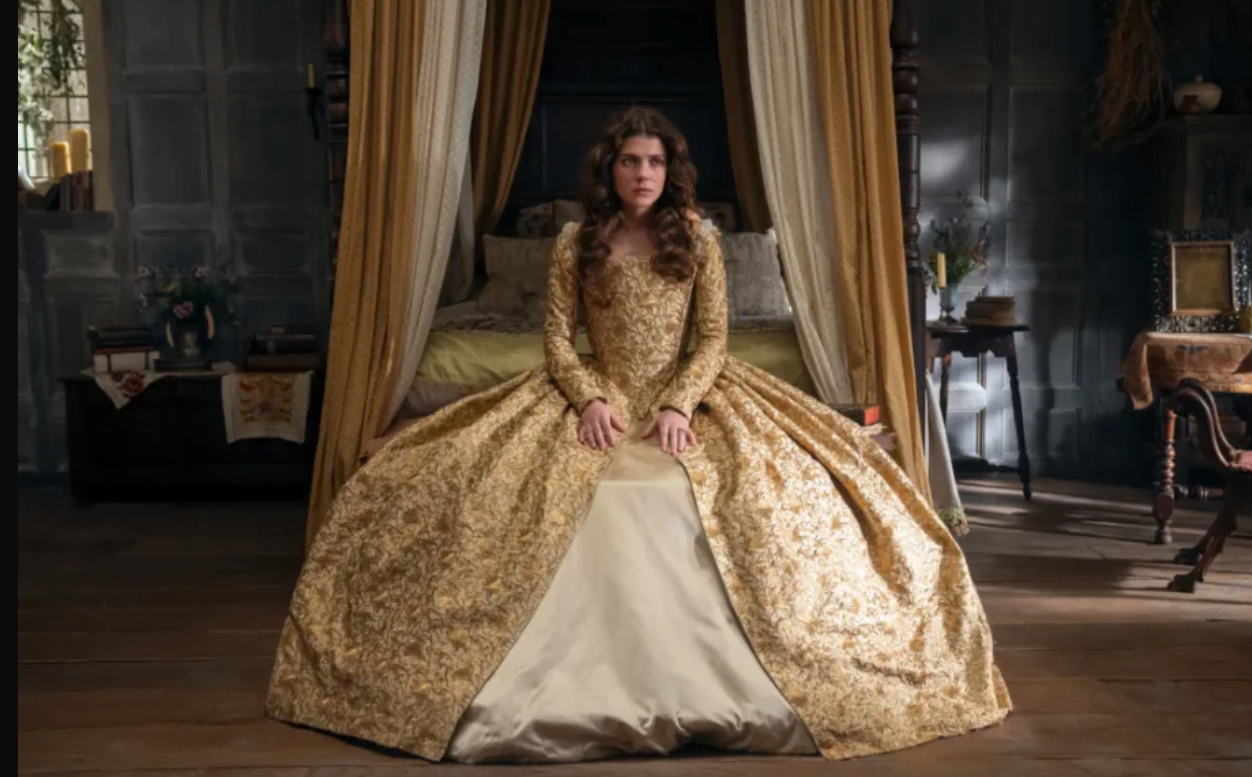The second season of House Of The Dragon, adapted from Martin’s Fire and Blood, is the central corpus of the Dance of the Dragons, the Targaryen Civil War between two factions — popularly called Team Black (in support of Rhaenyra Targaryen) and Team Green (in support of her half-brother Aegon Targaryen).
While Westerosi tradition, like several other dynasties of the ancient world, largely followed the primogeniture, Viserys Targaryen names Rhaenyra, his firstborn daughter, as his heir, even though he later has a son. Martin is speculated to have adapted the story from the real historical civil war called the ‘Anarchy,’ where the daughter of the King is named heir but the English society of the time doesn’t allow it. Since the realm was reluctant to accept a female ruler, and men clawed for power, believing they were inherently better than women, the Dance of the Dragons prevailed.
The story of two friends separated and embittered by the patriarchy continues in the second season as the women pursue their paths as mothers, queens, and victims of the patriarchy.
Queen Rhaenerya, a subject of tepid loyalty
Rhaenyra Targaryen, for most of the season, remains passive and indecisive, nevertheless cautious and mindful of the impending war. While she tries to secure peace by all means possible, her altercation with her husband-uncle Daemon, who thinks her incompetent due to her aversion to plunging into war, leads him to form a separate army of his own, thus almost betraying her trust as the proclaimed Queen and as his wife.
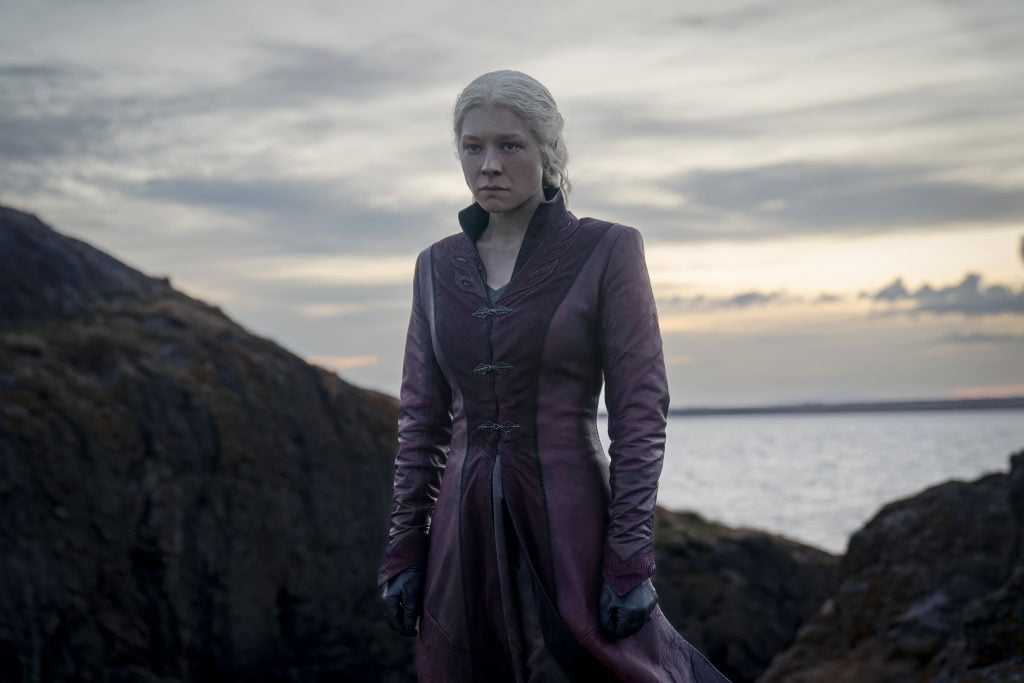
The men in the Black council, though loyal to Rhaenyra by name, only perfunctorily pledge to her cause, criticising any decisions she makes, scouting for an opportunity to push Rhaenyra into the backseat and steer the wheel of power. Even Rhaenyra’s son, Jace, who is shown to be her firm supporter, expresses dissatisfaction with his mother’s choices and implicitly urges her to ‘take action,’ by calling Daemon, hankering to feed into his interests.
The undercurrent of Rhaenyra’s character struggle throughout the season is that of her womanhood, which is associated with ‘weakness,’ more so because she is a woman. It is only another woman, Mysaria, who can counsel Rhaenyra and understand what sort of Queen, Rhaenyra has decided to become, standing by her decision without the contemplation that the men would have if Rhaenyra were a man.
“It is my fault that I think that you have forgotten to fear me,” Rhaenerya says after slapping one of her councilmen in the spur of the moment when he mansplains to her. What Rhaenerya rather means, the veiled implication of this small but important dialogue is that—it is because of her feminine and non-aggressive nature that she is not feared and that now she should start acting aggressively or more ‘masculinely,‘—perhaps the only way to achieve true loyalty; after which Rhaenerya picks up a sword and begins to prepare for combat like men do, something her younger self was deprived of.
The Queen Who Never Was—women standing up for women
Another iconic female warrior, Princess Rhaenys Targaryen, who was denied the throne despite being directly in line by the virtue of her womanhood, makes a significant sacrifice this season that propels the fight against the patriarchy in Westeros one step ahead. Rhaenys’s death might have been so that Rhaenyra could sit on the throne, as was rightfully declared, but it was also a noble deed of fidelity towards the cause of women.
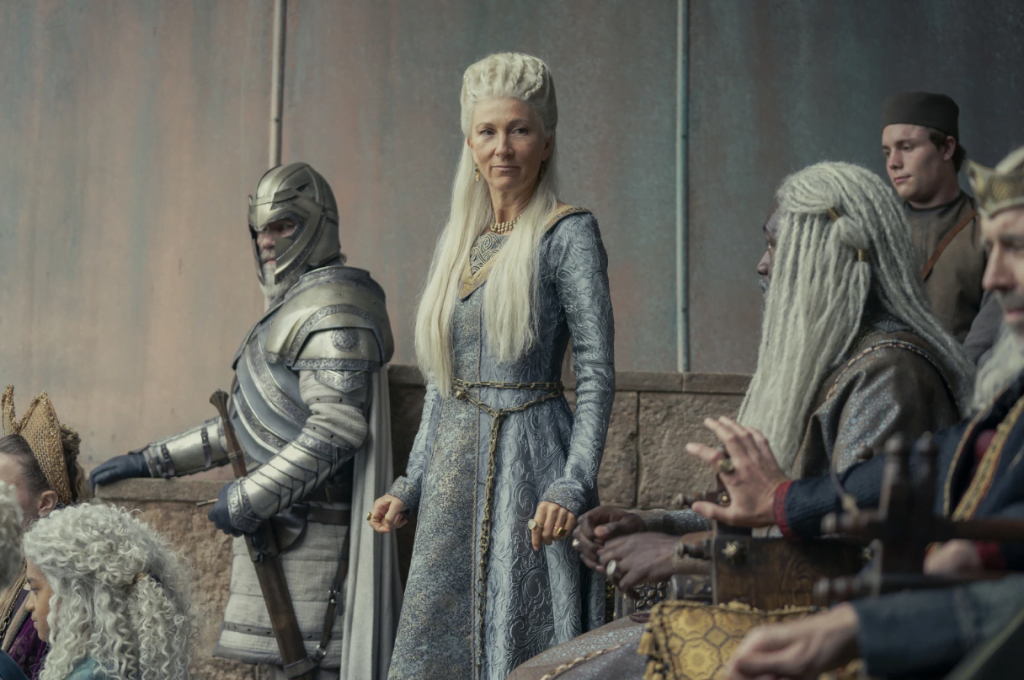
In the first season, Rhaenys tells a younger, immature Rhaenyra that “Men would sooner put the realm to the torch than see a woman ascend the Iron Throne,” and that it would be a futile course to chart. However harsh she may have sounded then, Rhaenys understands the deeper realities of Westerosi society, whether those be her wise words about war or the discrimination against women. After her death, her granddaughter Baela uses a similar argument to convince her grandfather, Corlys Velaryon, to continue providing his support to Rhaenyra. While Corlys does not stray from his path and shows unwavering loyalty to Rhaenyra, it is imperative to mark out that the loyalty isn’t born out of respect and honour towards Rhaenyra, the ruling Queen, but more of a homage to the late Princess Rhaenys.
Similarly, Daemon doesn’t bend the knee to Rhaenyra in the finale because he is abruptly charged with devotion – it is because he envisions the Prince that was promised, who is to come from Rhaenyra’s blood.
House Of The Dragon, 2, takes its time to build up the insidious yet hybrid masculinistic culture that takes a toll on women from all fronts and doubts their credibility subtly yet consistently.
Queen Alicent Hightower – the ultimate victim of ingrained patriarchy
Perhaps the most well-written and most misunderstood female character in the House Of The Dragon, 2, is Queen Alicent Hightower. Alicent is compelled to play the game as a dutiful daughter, a diligent wife, a compassionate queen, and a fierce mother, and is somehow given no wiggle room to err or to be imperfect. Alicent’s apathetic and rancorous demeanour is an accumulation of the burdens of being a ‘perfect woman’ and even then, not being rewarded by the patriarchy for being that ideal femme figure, a story similar to that of a younger Sansa Stark.
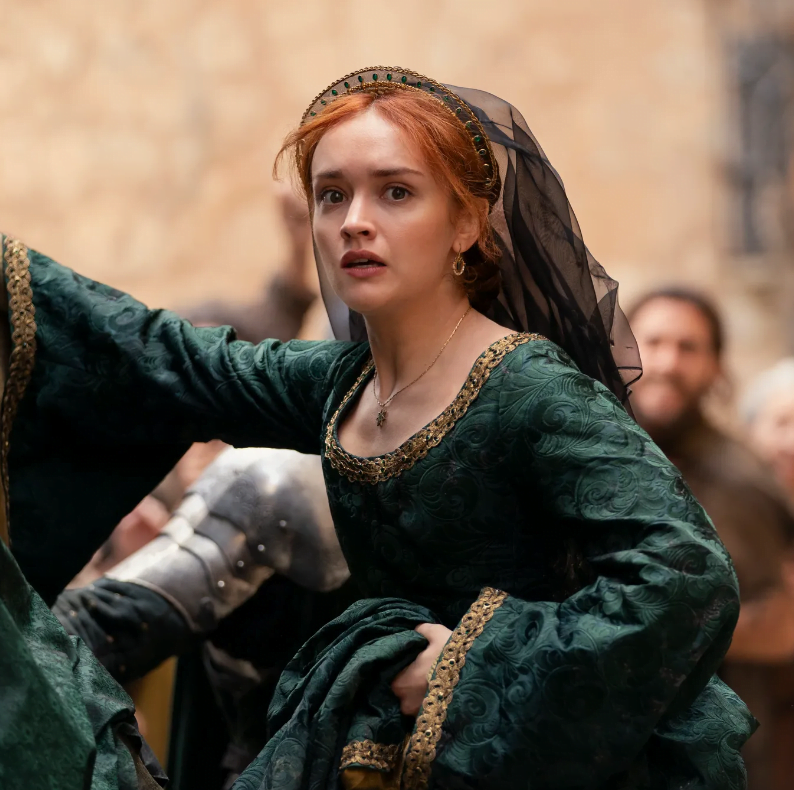
So instead of hating her for her choices, which she was tricked into by her father and the patriarchal values of an ‘honourable woman,’ she is a victim of a deeply rooted patriarchy that snatches away her power to resist any antagonising forces and fills her head with thoughts and moral considerations that turn her against other women.
Many criticise Alicent’s affair with Ser Criston Cole. It is rather hypocritical that the same fans who cheered for Rhaenyra’s promiscuous affairs with her king’s guard, Ser Criston, Ser Harwin Strong (while she was married to Laenor), and her uncle (Daemon), berate Alicent for enjoying herself after the death of her Lord Husband. Alicent is hypocritical when she walks the path of dalliance with Ser Criston despite her rectitude, true, but the fandom digs its claws too far into her skin.
Alicent ignores Aegon when he is grieving Jaehaerys because she is guilt-ridden and flummoxed herself, though she shouldn’t feel ashamed. It was never her ‘duty,’ to protect Helaena and her baby, it was Criston Cole’s, and it was he who should have been more vigilant. The fandom blaming Alicent for sleeping with him during that hour seems like another attempt to derogate female sexual pleasure.
While Alicent’s jealousy and hate towards Rhaenyra are not unnatural, it isn’t justified either. However, the same rules that applied to her didn’t apply to Rhaenyra, not by the realm and more importantly, not by the fandom either. Because Rhaenyra was the ‘protagonist, cool girl,’ and thus, she was always given a soft pillow to land upon.
On the contrary, Alicent, who did what she thought best in her position, was judged, in all trenchancy, and morally policed simply because she was gaslighted by men and inadvertently played a part in the patriarchy. This speaks a lot about how the fandom looks at certain women ‘deserving,’ of patriarchal retribution and others, the ‘cool girls,’ as culpable of social rewards because they are ‘anti-patriarchal’ in a fashion that suits a convenient, more appealing, and rewarding dialogue of feminism.
House Of The Dragon– it ends with the women
A paper which speaks of female friendships as a tool to dismantle patriarchy indirectly speaks volumes to the whole House of Dragon plotline and how Alicent and Rhaenerya’s friendship remains the linchpin struggle, a cause and consequence of both tragedy and justice. In the seventh episode of House Of The Dragon 2, Alicent takes a placid trip to the King’s Wood. Alicent realises how the patriarchy fooled her, is absolved by the experience of her romantic epiphany, and understands that there is no reward at the end of the tunnel, there is only emptiness and burdens.
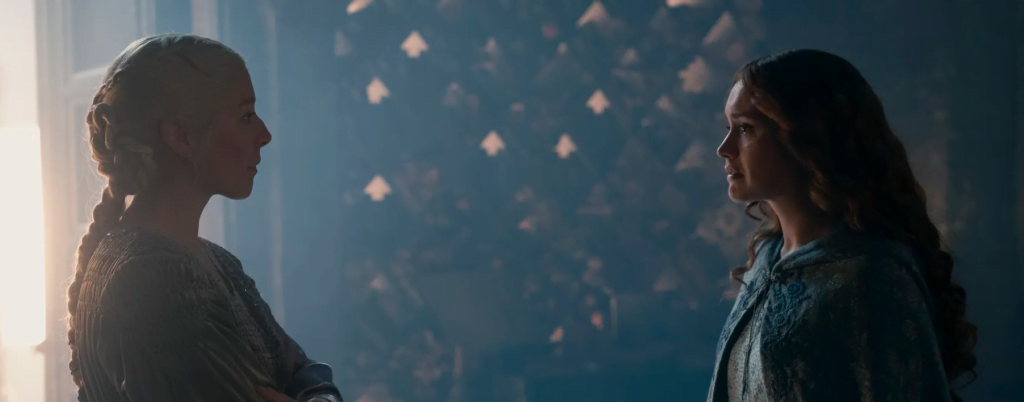
Alicent is redeemed when she swallows her pride and strikes a truce with Rhaenyra in the finale. True, the plea for peace was out of desperation and not an emission of virtuousness, but Alicent tries her best to rectify the errors that the men in her life goaded her into.
The conversation between Alicent and Rhaenyra is a shattering confrontation of the past of two women, two mothers, and two queens, torn apart by the ways of men. The finale ends with a sublime montage of Rhaenyra and Alicent staring into the abyss, in requiem of what was once a blissful girlhood era.
